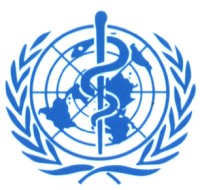- 60% of the "environmental services" - clean water, clean air, stable climate, are exploited in an unsustainable way and according to a report by the World Health Organization, this exploitation is already harming public health and harm

At the beginning of December 2005, the World Health Organization published a report on the "environment and human well-being" Ecosystems and Human Well-being: Health Synthesis, a report that attempts to describe the relationship between maintaining a healthy environment and public health.
In the last fifty years, human society has changed the natural environment at such an extreme speed that it cannot be compared, not to periods in human history and apparently not to geological periods either! A change that in part contributed to the development of the global economy and public health, but not all regions/populations benefit from it.
About 60% of the "environmental services" - clean water, clean air, stable climate, are exploited in an unsustainable way and according to the report, this exploitation is already harming public health and the harm will increase significantly in the next 50 years. When again, the harm will be to weak populations in the third world, those that depend directly on their natural environment.
Environmental services are essential for disease prevention and good health, since many diseases are caused or transmitted by animals - domestic and wild animals, a change in the environmental conditions of animals that carry diseases will affect (for better or worse) the health of the human population, for example: Nipah virus. A virus that was discovered only in 1999 and was probably carried by fruit bats, causes death in about 50% of those affected and had a limited distribution in Indonesia, following deforestation the virus was transferred (by bats) to neighboring Malaysia, initially appeared in pigs and later attacked people.
Raising domestic animals contributes to the standard of living of the breeders - food, clothing, etc. On the other hand, lack of veterinary care for domestic animals is a common cause of diseases. Similarly, contact between people and wild animals (eating wild animals) causes the spread of diseases, see the Ebola cases in Africa, deforestation and the expansion of agricultural areas, and at the same time the effect of global warming causes the spread of disease agents such as: mosquitoes, ticks and flies.
According to the report, the sensitive areas where the results are already felt today are: Africa - south of the Sahara, Central Asia, part of Latin America and parts of South and Southeast Asia. Acute health problems are already being identified in the above areas:
- Nutrition: A decrease in the amount of fish and agricultural produce causes malnutrition - in about 800 million people, with about a billion suffering from a diet lacking in vitamins and trace elements.
- Drinking water: diseases related to contaminated water affect about 3 million and cause about 6% of the deaths in the world! A billion people do not have safe access to water! Two billion have no sanitary conditions! When the lack of water increases mainly due to damage to the environment and improper utilization.
- Dependence on solid fuel (wood/coal/dung): 3% of respiratory diseases are associated with air pollution inside residential buildings, most of the world's inhabitants use solid fuel for cooking and heating, a use that is an important factor in the destruction of forests
Human health is related to the health of the natural environment. Nature provides most of man's needs, therefore when man utilizes nature he should do so with maximum consideration for the fact that a healthy environment allows for a healthy and healthy human population in the future.
The report, The Health Synthesis Report prepared by the international health organization WHO, was submitted to the "Millennium Commission" of the United Nations Millennium Ecosystem Assessment
